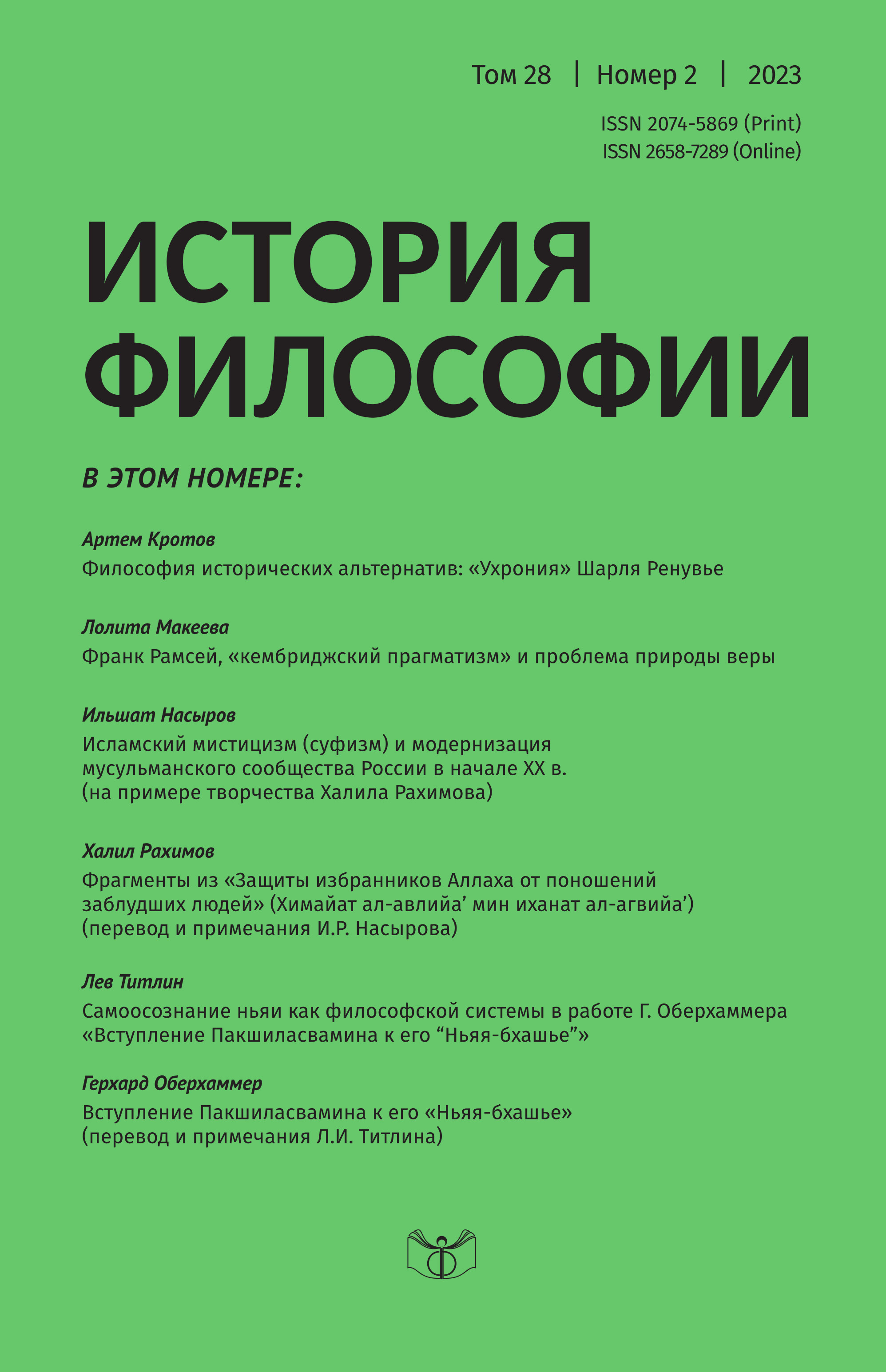Gerhard Oberhammer. Introduction to “Pakṣilasvāmin’s Introduction to his Nyāyabhāṣyam”
Preface, translation and commentaries
DOI:
https://doi.org/10.21146/10.21146/2074-5869-2023-28-2-117-139Keywords:
Gerhard Oberhammer, Viennese indological school, indology, Nyāya, Pakṣilasvāmin, Vātsyāyana, Nyāyasūtram, Nyāyabhāṣyam, Vāda, soteriologyAbstract
The publication is a commented translation and study of the work “Pakṣilasvāmin’s Introduction to his Nyāyabhāṣyam” by a prominent Austrian indologist and intercultural philosopher G.R.F. Oberhammer. The author examines the background of Oberhammer’s research, gives a brief information about the school of Nyāya and focuses on how Oberhammer demonstrates the history of Nyāya and its becoming aware of itself as a philosophical system based on the short text of Pakṣilasvāmin (Vātsyāyana) introduction to his Nyāyabhāṣyam. In his article, Oberhammer answers the question why such heterogeneous parts as elements of the theory of argumentation borrowed from the ancient tradition of Vāda (the theory of debate), logic and epistemology, cosmology and the doctrine of the soul and its liberation from the bonds of saṁsāra (soteriology) were combined into the harmonious philosophical system of Nyāya and how this happened during the development of the school due to its becoming aware of itself as a method of searching for truth (and what this truth is from the point of view of Nyāya), how this was helped by creative borrowing from another philosophical school – Yoga. The publication is prefaced by a brief history of the Viennese oriental and indological school, to which Oberhammer belongs.

